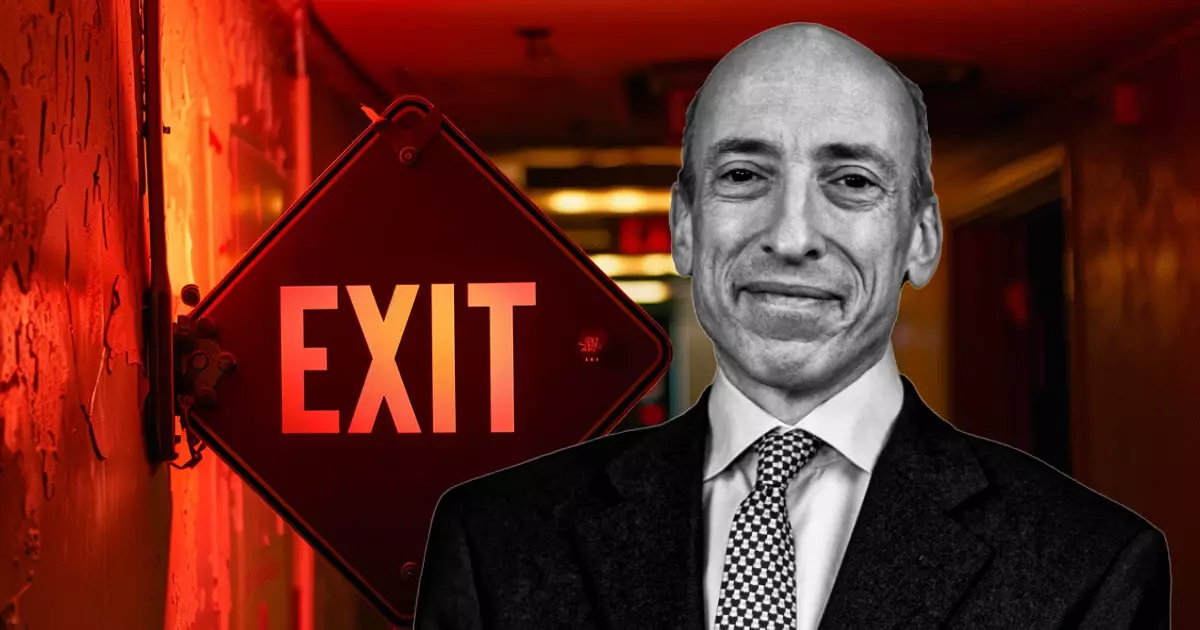The impending departure of Gary Gensler from his role as the Chairman of the U.S. Securities and Exchange Commission (SEC) on January 20, 2025, marks a significant juncture in the regulatory landscape. His resignation coincides with the inauguration of President-elect Donald Trump, suggesting a potential shift in the strategic direction of the agency. Gensler’s tenure, which began in April 2021, has been characterized by a mix of regulatory vigor and industry contention, particularly within the cryptocurrency sector.
Gensler’s reflections on his service underscore the profound responsibility that comes with overseeing an agency tasked with ensuring the integrity of American financial markets. He referred to the SEC as a “remarkable agency” filled with “true public servants,” emphasizing its mission to protect investors and facilitate capital formation. However, this mission often collides with the dynamic and sometimes unruly nature of newer financial technologies, particularly in the cryptocurrency realm. Gensler’s attempts to regulate and provide clarity to crypto markets have faced criticism from industry players arguing that his approach could stifle innovation.
Under Gensler’s leadership, the SEC aggressively pursued enforcement actions against major cryptocurrency exchanges like Binance, Coinbase, and Kraken. Accusations of operating as unregistered securities brokers sparked intense debates about the regulatory framework applied to digital assets. Critics argue that Gensler’s stringent stance has created an uncertain environment for innovation in the crypto space. In one instance, the SEC’s legal actions were perceived as overreach, raising critical questions about the agency’s role in fostering or impeding financial innovation.
One of the notable achievements during Gensler’s leadership was the approval of exchange-traded funds (ETFs) tied to Bitcoin and Ethereum. Initially opposed to these products due to concerns about market manipulation, Gensler’s position transformed following a pivotal court ruling that deemed the SEC’s rejection of Grayscale’s Bitcoin Trust conversion arbitrary. This shift illuminated the complexities and changing attitudes surrounding crypto product regulation and brought to the forefront the ongoing tussle between regulatory caution and investment opportunities.
As Gensler prepares to vacate his position, the SEC finds itself at a crossroads, awaiting the nomination of a successor who may bring a fresh perspective. The current political polarization within the commission, split between Democrats and Republicans, raises questions about its future direction. Possible candidates, including former Binance.US executive Brian Brooks and other notable legal minds, reflect a diverse array of philosophical approaches to regulation. The choice of a new leader will likely shape the SEC’s engagement with emerging technologies and its approach to investor protection.
Gary Gensler’s tenure as SEC Chairman has been marked by a commitment to investor protection amid a rapidly evolving financial landscape. As he steps down, the impact of his policies on both traditional and digital markets will resonate for years to come. The forthcoming leadership transition at the SEC will play a crucial role in determining how the agency balances the dual imperatives of fostering market innovation and safeguarding investor interests in an era defined by technological advancement and regulatory evolution.















